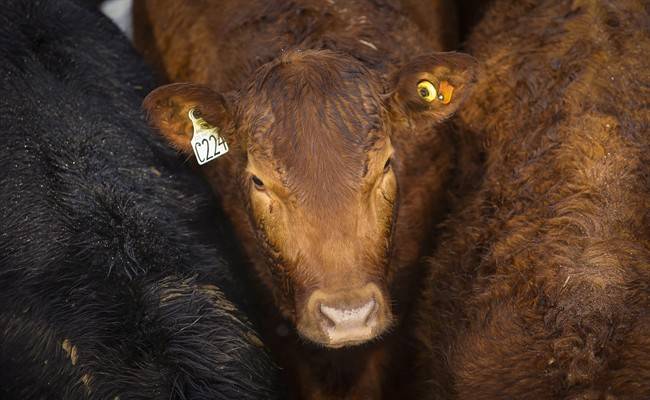Meat Processing Disruptions Amid COVID-19 Spur Changes to Canadian Beef Supply

Just in time for barbeque season, beef analysts expect changes in meat prices and supply in Canada following disruptions to the industry amid the COVID-19 pandemic
by Debbie Knight – Global News
After a two-week shutdown, Canada’s largest meat packing plant — Cargill in High River, Alta. — returned to work last week after dealing with a large COVID-19 outbreak among its employees. However, the temporary shutdown created some havoc within the industry.
A senior analyst with Canfax, Brian Perillat, said the industry will be dealing with the backlog of cattle from Cargill’s closure for quite some time.
“We’ve still got a long way to climb out of this yet,” Perillat said.
“When Cargill closed down we literally weren’t processing enough cattle in Canada despite being massive exporters of beef”
With a backlog in cattle that’s expected to last for the remainder of the year, Perillat said consumers might soon feel the blow of higher meat prices in stores.
“We’re seeing wholesale beef prices through the roof,” he said. “In terms of prices, especially on the U.S. side, their record high beef price was $265 for 100 pounds of wholesale beef, and this week, we’re at like $470, so it’s almost doubled the record high.”
As of right now, Perillat said retailers are absorbing the majority of the price increases in order to keep their shelves stocked, but he added the expenses may soon trickle down to consumers.
“We’re going to be dealing with this on the production side for the rest of 2020 to get through the backlog of cattle,” he said.
As far as meat shortages go, Perillat noted that retailers are working hard to keep their shelves stocked, and buyers should still be seeing a decent selection of meat despite the backlog in processing.
“You may go into stores and you may not find the higher end or middle steaks,” he said. “There is still a bit of a shortage out there, but it’s not like the shelves are going to be bare of all products.”
However, one change consumers may be seeing is a decline in Canadian meat.
In a statement to Global News on Wednesday, food-retailer giant Sobeys also noted that due to the disruption in processing, its Canadian supply chain has seen a dip.
“While beef and pork products are still available on our shelves, our typical Canadian volumes have been impacted,” the statement said.
“This said, we have contingency plans in place to minimize the store-level disruption, and customers across Canada may notice more US products on our shelves in the meantime.”
Sobeys also noted that it anticipates returning to its normal level of Canadian beef stock within the next few weeks.
However, not every store is feeling the pinch just yet. General manager with Urban Grocer, Shane Eustace, noted that his Calgary-based store deals mostly with small producers that have not yet been impacted by COVID-19 related struggles.
“Our pricing hasn’t changed to this point,” Eustace said.
“Anything could happen and I never say never, but so far, it’s been fairly consistent, changes are much much more gradual for us than they are at large grocery stores.”
Eustace also noted that while his supply is still in good shape, demand for meat has increased as residents begin to look ahead to barbeque season.
“The demand is going up and people are very excited to get outside and do some barbequing,” he said. “We have seen a lot more people cooking at home since the restaurants have not been open.”












